One of the most crucial roles Aegis carries out within our recognised employers, are the annual pay negotiations.
To help you understand our role in this process, we thought it would be beneficial to provide you with an overview of how we prepare, consult, negotiate, and communicate throughout the process to our members for these important negotiations.
1 – Preparation:
- We research industry standard pay settlements and the current economic climate and member concerns.
- We then issue a survey to our members to understand their expectations on a fair award and any key themes that need to be formally raised during the negotiations.
- The Aegis Reps team then identifies key priorities for the formal negotiations.
- The Aegis team will also agree a minimal financial percentage of the overall pot offered, that they can agree on without the need to consult the membership.
- The Reps team then decides the negotiation team and elects’ the representatives to take part in the formal negotiations.
2 – Setting Objectives:
- The Aegis team then set clear objectives and goals for pay negotiations based on member input from the survey and current economic analysis.
- These objectives may include salary increases for all eligible employees, recognition and reward for previous year performance, improvements in benefits, or other compensation-related matters, particularly the recent impact of the cost-of-living crisis.
3 – Proposal Development:
- The Aegis negotiation team then prepares a comprehensive pay proposal to submit to the employer prior to the formal negotiations commencing, outlining desired changes and improvements on behalf of the members.
- The proposal is then presented to all of the Aegis reps within the Branch to vote to formally submit to the employer.
4- Negotiation:
- The Aegis negotiation team then formally meet with employer representatives to discuss the pay proposal.
- The employer will open the negotiations with an overview of the company’s performance in the previous financial year, objectives, and challenges for the short and long term.
- The employer representatives will then respond to the opening formal Aegis pay submission to either agree or offer a counterproposal.
- Negotiations may involve multiple meetings, discussions, and exchanges of counterproposals until an agreement can be reached.
5 – Consulting with Members
- If the employers propose a pay offer that the Aegis negotiation team are unable to agree on (See section 1 – “Preparation”, point 4) we would then need to consult with our members.
- This would take place via an indicative member’s ballot.
- The indicative ballot will outline the negotiation process up to that point and the latest proposal from the employer. Then the members will be asked to vote to accept or reject the proposal
- The Aegis team may make the decision for members to accept or reject the proposal as part of the indicative ballot, or alternatively, not put any recommendation.
- If the members ‘Accept’ the proposal, then we move on to the ‘Agreement’ section.
- If the members ‘Reject’ we return to the negotiations, seeking an increased offer from the employer.
- If the employer increases their proposal, we may consider accepting on behalf or our membership or again, send an indicative ballot for members to decide. (with or without a union recommendation)
6 – Stalemate
- If the members vote to reject an offer on the indicative ballot and the employer are unable to increase their offer, then the Aegis team will consider seeking external collective conciliation with ACAS for them to review the process and offer advice to both parties.
- Further details can be found on the following link:
https://www.acas.org.uk/collective-conciliation
- It is worth noting that this very rarely occurs and is a last resort in this process, as Aegis are proud of the relationships, they have with all their recognised employers and work together through open and honest dialogue to always reach amicable solutions.
7 – Agreement:
- When both the Aegis Team and employer reach an agreement on pay terms, a formal deal is reached.
- Agreement may be subject to ratification by union members through a vote.
- If ratified, the pay deal becomes finalised and implemented then communicated to all employees through a Joint Statement between Aegis and the employer.
I hope this provides more clarity around the role we play in these negotiations.
We are proud of the many agreements we have reached with our employers on pay over the years, some of the best within the sector.
The key thing, like anything we do as a union, is that these processes are driven by our membership and the Aegis negotiation team are acting in the best interest of those they represent.


